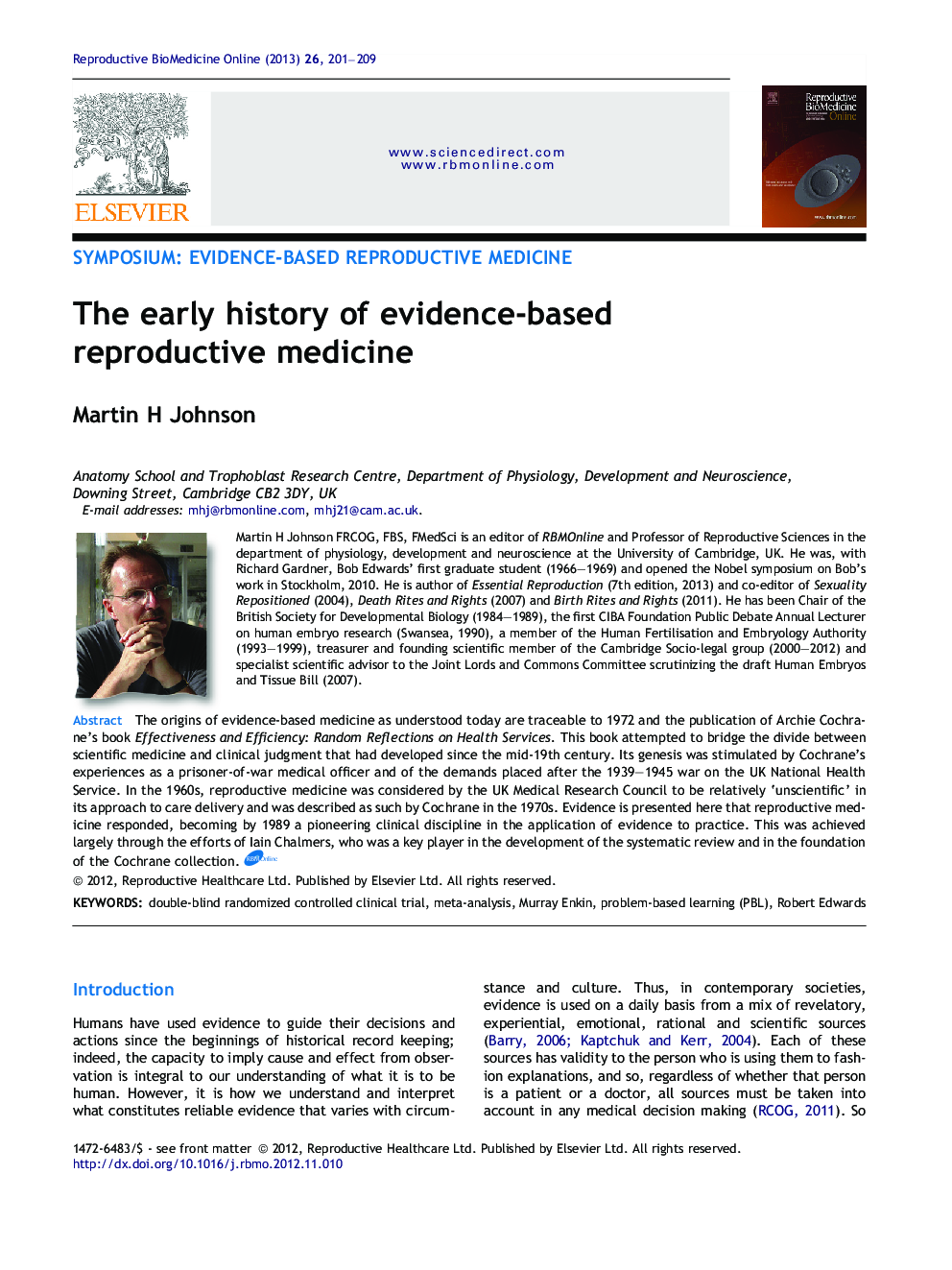| Article ID | Journal | Published Year | Pages | File Type |
|---|---|---|---|---|
| 3970656 | Reproductive BioMedicine Online | 2013 | 9 Pages |
The origins of evidence-based medicine as understood today are traceable to 1972 and the publication of Archie Cochrane’s book Effectiveness and Efficiency: Random Reflections on Health Services. This book attempted to bridge the divide between scientific medicine and clinical judgment that had developed since the mid-19th century. Its genesis was stimulated by Cochrane’s experiences as a prisoner-of-war medical officer and of the demands placed after the 1939–1945 war on the UK National Health Service. In the 1960s, reproductive medicine was considered by the UK Medical Research Council to be relatively ‘unscientific’ in its approach to care delivery and was described as such by Cochrane in the 1970s. Evidence is presented here that reproductive medicine responded, becoming by 1989 a pioneering clinical discipline in the application of evidence to practice. This was achieved largely through the efforts of Iain Chalmers, who was a key player in the development of the systematic review and in the foundation of the Cochrane collection.Evidence-based medicine is considered as being the gold standard, combining the best available objective evidence with the individual skills and experience of the doctor attentive to the specific needs and cultural beliefs of each patient. This paper traces the origins of evidence-based medicine as understood today back to 1972 and the publication by Archie Cochrane of his book Effectiveness and Efficiency: Random Reflections on Health Services. This book attempted to bridge the divide between scientific medicine and clinical judgment that had developed since the mid-19th century. Its genesis was stimulated by Cochrane’s personal experiences as a prisoner-of-war medical officer and of the demands placed after the 1939–1945 war on the UK National Health Service. In the 1960s, reproductive medicine was considered by the UK Medical Research Council to be relatively ‘unscientific’ in its approach to care delivery and was described as such by Cochrane in the 1970s. Evidence is presented that reproductive medicine responded by becoming by 1989 a pioneering clinical discipline in the application of evidence to medical practice.
